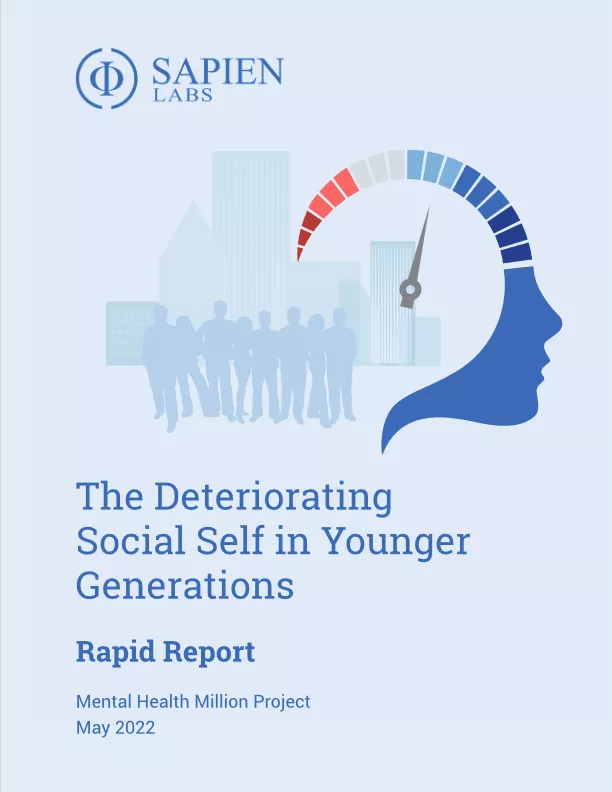Smart phones have brought significant changes to our way of life, enabling us to get information on the road and keep in touch wherever we are. But the benefits they offer are only part of it. A shocking new study by sapien laboratory, a non-profit research organization, shows that while the use of smart phones and social isolation have increased, the mental health of the younger generation has also decreased.

Data show that people now spend an average of 7-10 hours on the Internet every day. "This leaves people with little time for face-to-face social activities. Before the advent of the Internet, when a person was 18, we estimated that they might have spent 15000 to 25000 hours interacting with people of the same age and their families," said Dr. Tara tiaglayan, chief scientist of sapien laboratory
However, the Internet age is likely to reduce this range to between 1500 and 5000 hours. Dr. tiaglayan said that social interaction teaches people how to read facial expressions, body language, body contact, appropriate emotional response and conflict resolution. These life skills are very important for social emotional development. Without these skills, people will feel disconnected from society and may have suicidal thoughts, she said.
The report shows that this decline is consistent in the 34 countries with survey data, and the mental health status of adults in each young age group decreased even more during the covid-19 pandemic.
Symptoms that affect most young adults aged 18-24, or that are significantly amplified or worsened compared with the elderly, include obsessive-compulsive, strange or unwanted thoughts; Self image, self-worth and confidence; A sense of detachment from reality; Relationship with others; Suicidal thoughts; Fear and anxiety; And feelings of sadness, pain or hopelessness.
These symptoms point to what the report calls a decline in the 'social self', a measure of how we see ourselves and how we form relationships. "This underscores the scale and nature of the challenges of social isolation and digital interaction at the expense of personal networking," tiaglayan said
For a complete report, please refer to: